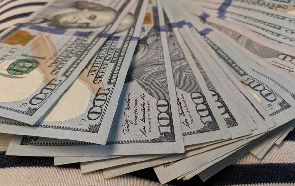Dollar supply in Nigeria soared after the central bank scrapped restrictions on buying foreign currency required to import 43 items, in a bid to stem the naira’s 40% rout this year.
Liquidity at the investors and exporters window — the official foreign-exchange market — increased more than five-fold to $407.7 million on Thursday after the central bank’s announcement, according to Chapel Hill Denham, a Lagos-based investment bank. The naira gained for the first time in three weeks in the parallel market Friday, said Umar Salisu, a trader who compiles the data.
“The supply was mainly from sources outside the central bank but I expect central bank supply to increase,” Tajudeen Ibrahim, head of research at Chapel Hill said. The announcement on Thursday “is an indication that the central bank wants to be more frequent in its intervention,” which will moderate the rate in the parallel market, he said.
Nigeria, Africa’s biggest crude producer, has been struggling to boost supply of dollars for years after failing oil revenue left its foreign-exchange reserves in a perilous state. That prompted authorities to stop selling foreign currency to importers of products such as rice, vegetables and chicken in a bid to encourage local production.
The move only pushed demand for dollars to the unauthorized market. The naira advanced 0.3% to 1,042 a dollar in the unofficial market on Friday, according to Salisu.
President Bola Tinubu’s move to allow the currency to trade more freely helped merge the official and parallel-market rates briefly. The spread started widening again in August, pressured by inadequate official dollar supply and excess demand at the parallel market.
The central bank aims to eliminate the parallel market premium of 27% when compared with the official rate of 759.20 naira a dollar to boost the confidence of foreign investors.
The central bank’s ability to win investor confidence and stabilize the market will depend on the country’s capacity to amass dollars, Ibrahim said. “If there is no inflows to the central bank and to the government from crude oil sales and borrowing, then we may see the intervention dissipate faster than expected.”
Business News of Friday, 13 October 2023
Source: Bloomberg
Dollar supply soars in Nigeria after Central Bank removes some foreign currency restrictions
Entertainment
















